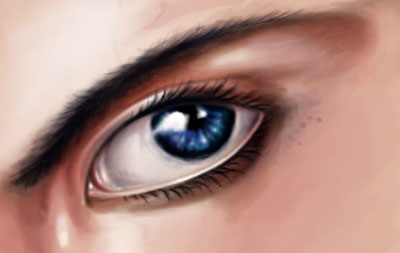All Nonfiction
- Bullying
- Books
- Academic
- Author Interviews
- Celebrity interviews
- College Articles
- College Essays
- Educator of the Year
- Heroes
- Interviews
- Memoir
- Personal Experience
- Sports
- Travel & Culture
All Opinions
- Bullying
- Current Events / Politics
- Discrimination
- Drugs / Alcohol / Smoking
- Entertainment / Celebrities
- Environment
- Love / Relationships
- Movies / Music / TV
- Pop Culture / Trends
- School / College
- Social Issues / Civics
- Spirituality / Religion
- Sports / Hobbies
All Hot Topics
- Bullying
- Community Service
- Environment
- Health
- Letters to the Editor
- Pride & Prejudice
- What Matters
- Back
Summer Guide
- Program Links
- Program Reviews
- Back
College Guide
- College Links
- College Reviews
- College Essays
- College Articles
- Back
Emergency Room 11 MAG
Blood soaked her shirt. She let out a deep bellowing noise, an attempt at coughing drowned out by her inability to breathe. She stared blankly at me, as if she wanted to say something. I fastened a blood pressure cuff on her right arm while the charge nurse tried to get another IV line started. Constant high-pitched beeps drowned out the commands of the other nurse. The patient on the stretcher stared at me, and finally mustered up the strength to groan, “I feel like I’m gonna throw up.” She groaned again and suddenly blood poured from her mouth. The dying patient in Emergency Room 11 made the biggest impact on my life.
Life seldom goes perfectly, especially in the Emergency Department. However, my experience with that woman in Emergency Room 11 was at the bottom of the list of things that made me retch during clinical rotation. Two hours of rotations every school day in two-week blocks during the past two years gave me my first glimpse into the life of a medical professional. The second year of the clinical rotation class focuses on getting the highest medical license available to high school students: Basic Emergency Medical Technician, or EMT-B. The previous year had focused on earning the Certified Nursing Aide license, or CNA.
Last year, some of my peers asked about my life as a clinical student. Did I observe cool surgeries like on “Grey’s Anatomy”? Did I see victims of multicar pile-ups brought in by ambulance? Sometimes we do have a helicopter flying in a patient from another hospital or an ambulance bringing in an infant with a seizure, but rarely does life throw perfect pitches.
Some pitches end up as curve balls. Working to get my CNA license required 24 hours of nursing-home experience over a four-week period. As CNA students who are at the lowest position on the hierarchy of patient-care providers, we got the worst jobs. The CNA in charge paired us with elderly residents and had us help them with the morning routine. On the surface, this entails fixing residents’ hair, making their beds, and taking them by wheelchair to the dining room for breakfast. However, a deeper look reveals that our job entails many tasks that were not only difficult but also not as sanitary as one would hope. Changing soiled diapers actually topped the list of easy skills a CNA must master. Bathing a resident usually consumes a lot of time, sometimes the whole period spent at the nursing home.
Occasionally life throws a slider, where, simply put, something just happens and it slips by because you cannot do much about it. In the Emergency Department at the medical center, EMS brought in a trauma case: a 53-year-old man with an intracranial bleed (or bleeding in his brain). I stayed in the room while the physician intubated him, placing him on a respirator. There followed an awkward silence pierced only by the whoosh of the respirator forcing air into the man’s lungs. His wife looked on with a blank expression, while his son, who was my age, paced the room. He stared at his father lying on the hospital bed, then turned to me, and back to his father again. He seemed to be struggling with something he wanted to ask. Finally, looking at me with tears in his eyes, he asked, “Do you get these kinds of patients often?” I did not have the courage to reply. All I could think to do was excuse myself, telling the physician that I needed a minute alone. Time slipped by, and I felt as though I had no control over the situation. Life is never perfect.
Looking back on my two years in the clinical rotation program, I’m pretty sure that if I had a dime for every person who asked me why I take the class, I’d have enough money to pay for college. Many of them tried to convince me to take other classes, citing the low-scaled GPA because clinical rotation isn’t an honors or AP class, spring break spent getting ambulance experience, and of course, the “ick” factor of stepping in blood and vomit sometimes.
For me, the clinical rotation class has not only been the foundation on which I begin to build my medical career but also has helped me mature. As our teachers warned us the first day of school, we would see things we never would have during a normal high school career, and we learned from these experiences. My studies to be an EMT-B have given me the chance to explore medicine and have motivated me to become a doctor. My experience in the clinical rotation class has taught me that although life does not always throw the perfect pitch, my homerun will come when I reach my goal: becoming a doctor.

Similar Articles
JOIN THE DISCUSSION
This article has 5 comments.

2 articles 0 photos 6 comments
Favorite Quote:
It only goes up from here.